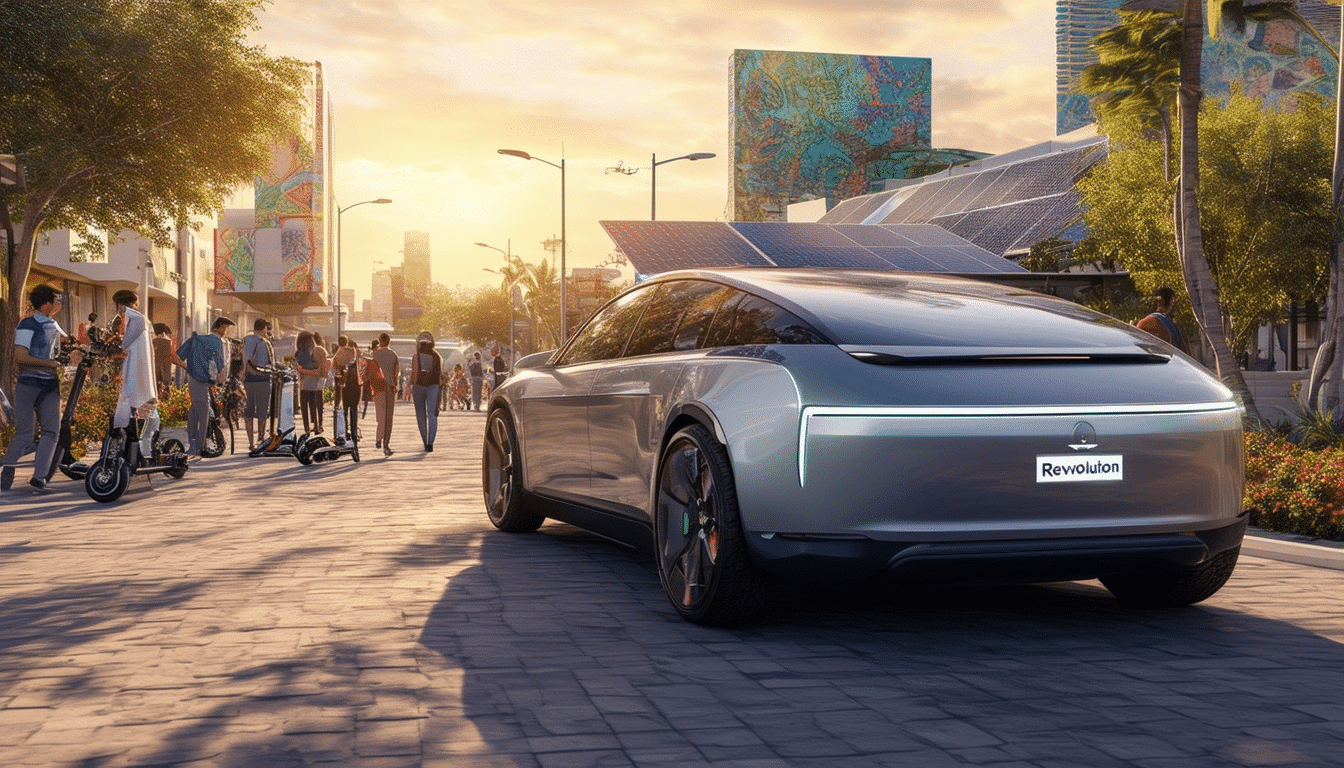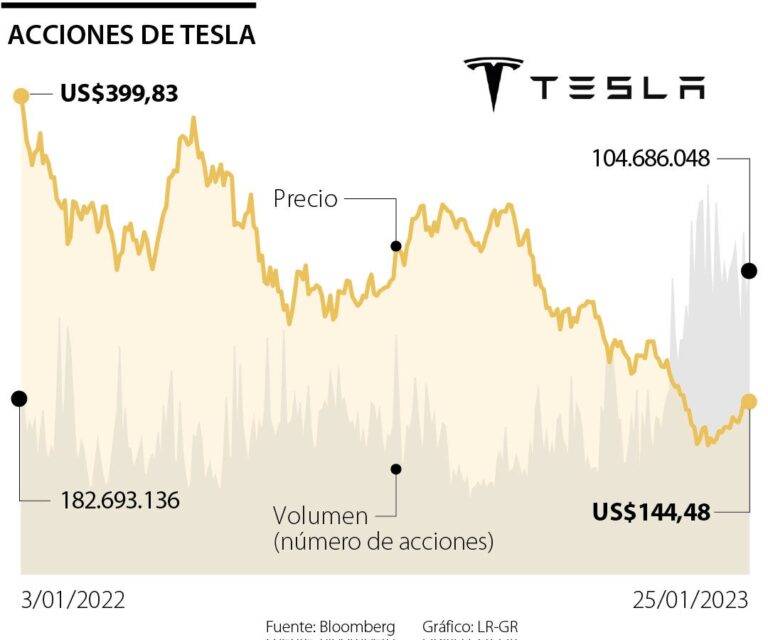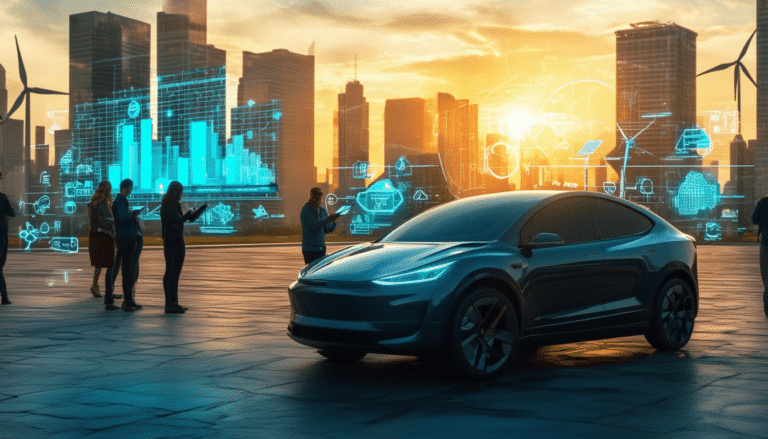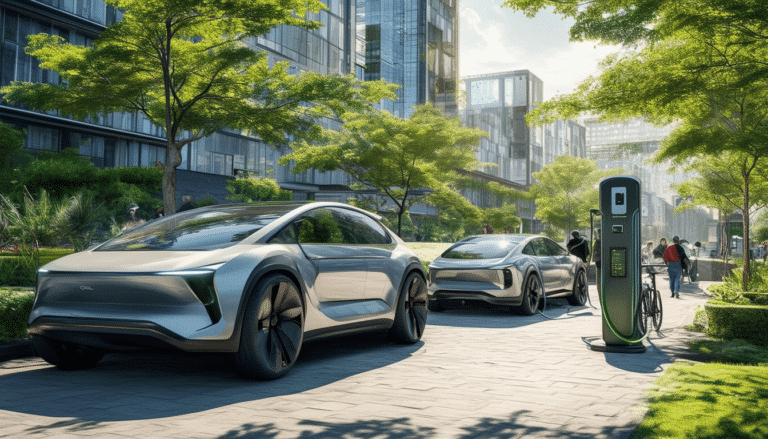Revolution on Wheels: The Future of Electric Motor in Mexico

In Mexico, the electric motor revolution is challenging traditional transportation conventions. With the rise of innovative brands like Zacua and international manufacturers adapting to the local market, the country is strategically positioned to lead the transition towards more sustainable and efficient mobility. By integrating advanced technologies and developing appropriate infrastructures, Mexico opens a new chapter in the history of automotive, where electric vehicles begin to dominate the roads and the debate about the ecological future of transport becomes more relevant than ever.
In Mexico, electric mobility is increasingly taking center stage, offering sustainable and efficient solutions for the transport of the future. With the growth of brands like JAC and local developments like Zacua, the country is positioning itself as a key player in the global transformation towards automotive sustainability. From innovation in electric motors integrated into the wheels to the deployment of dedicated infrastructures, Mexico is advancing towards a cleaner and more modern transportation ecosystem.
The revolution of electric vehicles in Mexico
The growing presence of electric vehicles (EV) in Mexico reflects a transition towards a more sustainable future. Automotive companies are accelerating the development of clean technologies to tackle climate change. Zacua, a proud national production, is setting standards with its electric cars, showcasing Mexico’s commitment to this transition.
Technological innovations and their impacts
The implementation of electric motors in each wheel is one of the most revolutionary innovations that promises to redefine electric cars as we know them. With this technology, brands are seeking to increase vehicle efficiency and provide a smoother and more agile driving experience.
For example, iconic companies like BMW have bet on this innovation, demonstrating that it is not only about sustainability but also about performance and power.
Challenges on the road to electrification
Despite the advancements, the path to electrification is not without challenges. The lack of sufficient charging infrastructure, high initial investment costs, and general unfamiliarity with the technology are obstacles that must be overcome to consolidate the EV market in the country.
Opportunities in the Mexican market
Mexico has a privileged position to become a leader in the electric vehicle market in Latin America. With appropriate government incentives and a clear policy on imports and local development, the country could capitalize on its manufacturing potential to serve both domestic and international markets.
Initiatives like those being incentivized in China could serve as a model for Mexico and could help reduce costs and improve the necessary electrical infrastructure.
The rise of electric scooters
Beyond cars, electric scooters are gaining ground in Mexico’s urban landscape. They are a versatile and economical solution that addresses traffic and pollution problems in cities.
Discovering the advantages of an electric scooter not only stands out for its lower operating cost but also for the convenience of easily moving around congested metropolitan areas.
Future perspectives
Looking ahead, the prospects are encouraging as Mexico seeks to establish itself as an innovative hub in electric mobility technology. The arrival of new models and the proliferation of charging points are just some indicators of this ongoing transformation.
According to forecasts, the number of electric and hybrid models available in the country is expected to grow significantly, which can be explored in depth in this upcoming list of electric vehicles.
Mobility is undergoing a radical transformation, driven by electric innovations that promise to redefine transportation in Mexico. The inclusion of electric motors in cars represents a significant shift towards a more sustainable future and less dependence on fossil fuels. Companies like Zacua stand out as pioneers, developing cars that accelerate this transition with designs that integrate advanced technologies into their vehicles.
The increase in the local production of electric vehicles not only impacts emissions reduction but also positions Mexico advantageously within the global landscape of sustainable transport. Projects like the independent motor in each wheel from Ferrari or the efficient motor providing 98.5% additional autonomy promise that the local automotive industry will adopt innovations that define a new standard.
On the other hand, the debate over whether electric cars are a true solution to climate change or merely serve to change environmental perceptions remains relevant. However, the development of hybrid and electric vehicles by recognized brands like Volkswagen and BMW reflects a tangible commitment to mitigating adverse climate effects.
The infrastructure remains a crucial challenge. The development of a network of charging stations and incentives for purchasing these vehicles are necessary steps that the country must take to ensure the success of this revolution. As public policies align with these objectives, significant advancements in terms of accessibility and environmentally friendly practices are expected.
The future of electric mobility in Mexico is not just a promise, but an expanding reality that requires combined efforts from governments, industries, and consumers. The evolving dynamics in the Mexican automotive sector herald a cleaner future, accelerated by the coexistence of electric motors that promise to transform how we move.




